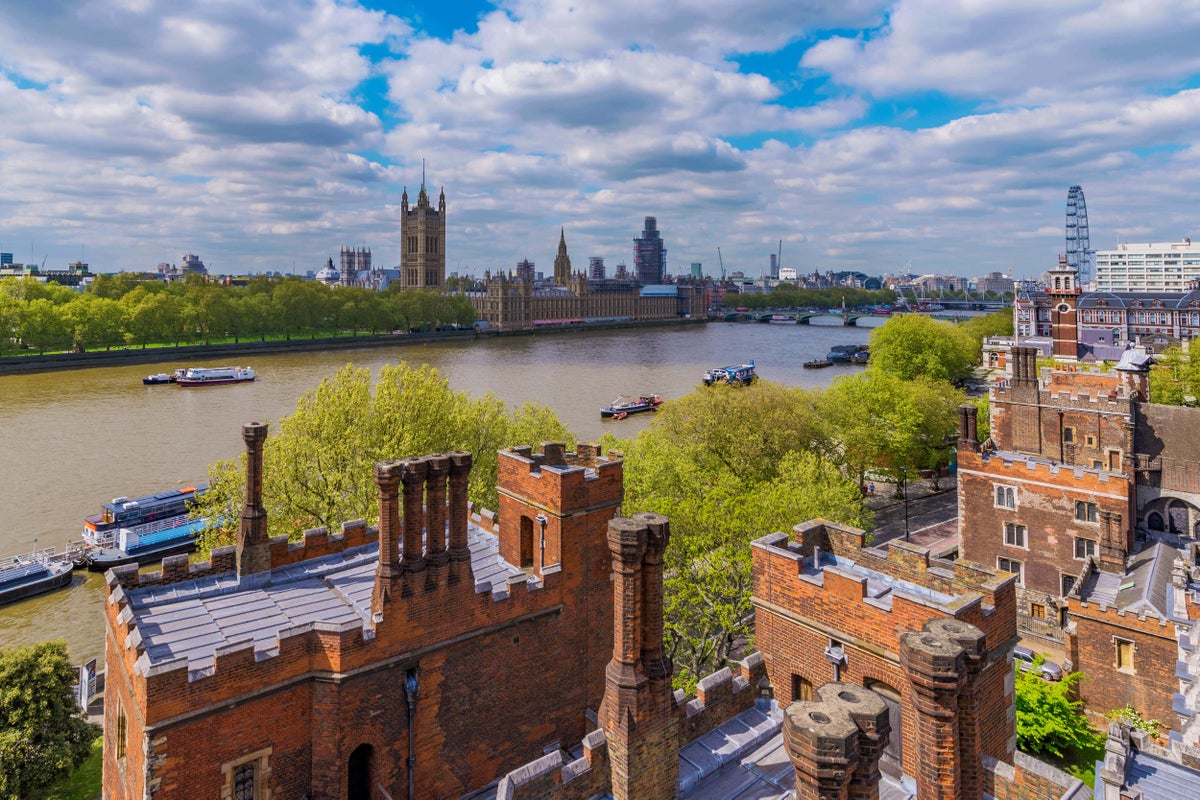
Former archbishop of Canterbury Dr Rowan Williams summed up succinctly the balance and knowledge someone must have both of religion and current affairs to hold the senior Church of England role.
He said he believed his successor, who ended up being Justin Welby, needed a “newspaper in one hand and a Bible in the other”.
Here, the PA news agency takes a look at some of the challenges the new archbishop might face, both within the Church and on wider matters.
– Safeguarding and abuse scandals
It was failures on safeguarding which led to the downfall of Mr Welby after more than a decade as the 105th archbishop of Canterbury.
He announced his resignation in November 2024, following days of pressure after an independent review concluded barrister and Christian camp leader John Smyth, the most prolific serial abuser to be associated with the Church, might have been brought to justice had Mr Welby formally reported him to police in 2013.
At the time, he said he was quitting “in sorrow with all victims and survivors of abuse”.
The Church has been plagued by safeguarding controversies over the years, with Archbishop of York Stephen Cottrell, who himself has also faced calls to quit over failures in handling abuse cases, admitting earlier this year that the Church has “failed greatly” on safeguarding.
The General Synod, effectively the Church’s parliament, voted not to bring in full independent safeguarding in a move branded a “punch in the gut” for victims of abuse.
Despite survivors’ pleas for the Church to endorse a new model which would have seen all Church-employed safeguarding officers transferred to a new independent body, members instead voted for a less independent model, meaning most national staff move to a new outside non-Church body, but other diocesan and cathedral officers remain with their current Church employers, and for “further work” to be done to implement the move to full independence.
– Same-sex blessings and equal marriage
In May this year a call was made in Parliament for the next archbishop of Canterbury to show leadership on same-sex marriage.
Labour MP Steve Race told MPs he wanted the person chosen to believe in treating LGBT+ Anglicans equally.
While blessings for same-sex couples in civil partnerships and marriages were approved more than two years ago, there has been a failure to reach agreement on their use as part of standalone services.
In February 2023, the General Synod voted in favour of offering blessings, with the first of these given in December of that year.
The issue has divided church members, with blessings being welcomed as progress by some, others believing they go too far and some still feeling the real change needed is same-sex marriage recognition.
– Church attendance
Data published in May showed in-person attendance has not yet returned to pre-pandemic levels.
The preliminary snapshot of Statistics for Mission showed the overall number of regular worshippers across the Church of England’s congregations stood at 1.02 million in 2024.
While this was a rise from 1.01 million the previous year, it was still below the 1.11 million figure for 2019.
– Migration
With immigration often in the headlines in recent times, the new archbishop is bound to be asked for views, or might even volunteer them as predecessors have done in the past.
Mr Welby strongly criticised the previous Conservative government’s scheme to send asylum seekers to Rwanda, which he warned was “leading the nation down a damaging path”.
In August, Mr Cottrell, as interim head bishop in the Church, accused Nigel Farage of an “isolationist, short-term, kneejerk” response to the small boats crisis.
The archbishop said the Reform UK leader, who has promised mass deportations, was not offering a solution to the “big issues” driving people to risk the English Channel crossing.
– Poverty
The Church has long been part of calls for the scrapping of the controversial two-child benefit limit, which campaigners say pulls children into poverty.
Organisations working in the sector argue that 109 children across the UK are pulled into poverty by the policy every day and that an estimated 350,000 children would be lifted out of poverty immediately if it was scrapped.
In August, Mr Cottrell said the failure to tackle child poverty was “deeply shaming for us as a nation” and said the two-child limit was “one of the contributing factors”.
The Labour Government has promised to publish its strategy for tackling child poverty in the autumn, after it was delayed from spring.
– Assisted dying
Bishops in the House of Lords have spoken out strongly against the assisted dying Bill for England and Wales which is currently going through Parliament.
Mr Cottrell described the Terminally Ill Adults (End of Life) Bill as “wrong because it ruptures relationships” and argued it will “turbocharge” the agonising choices facing poor and vulnerable people.
Dame Sarah Mullally, Bishop of London, said the “choice” to die “is an illusion” without “fully-funded palliative and social care services” and insisted there are “no amendments to this Bill that can safeguard us completely from its negative effects” and that the draft law “fails in its central plank, that it delivers choice”.
But Lord Carey, a former archbishop of Canterbury, is at odds with his religious colleagues on the issue and claimed they are not representing their own Church in their staunch opposition to the Bill.
He warned that both the Lords and Church bishops should not stand in the way as to do so would be to “risk our legitimacy by claiming that we know better than both the public and the other place (the Commons)”.
